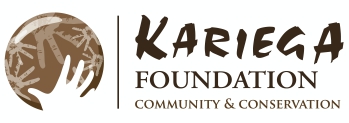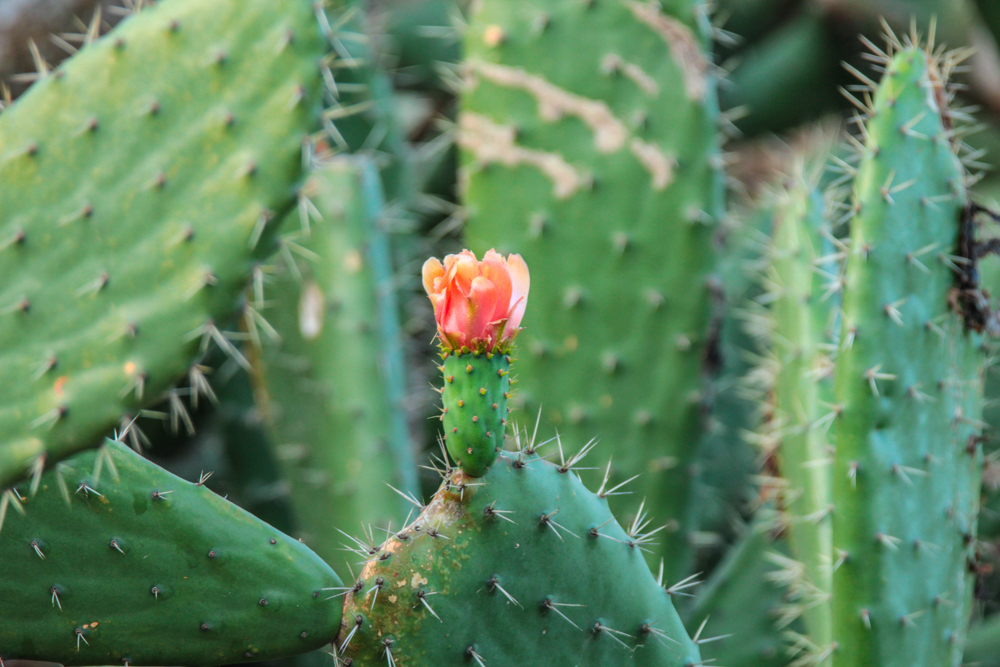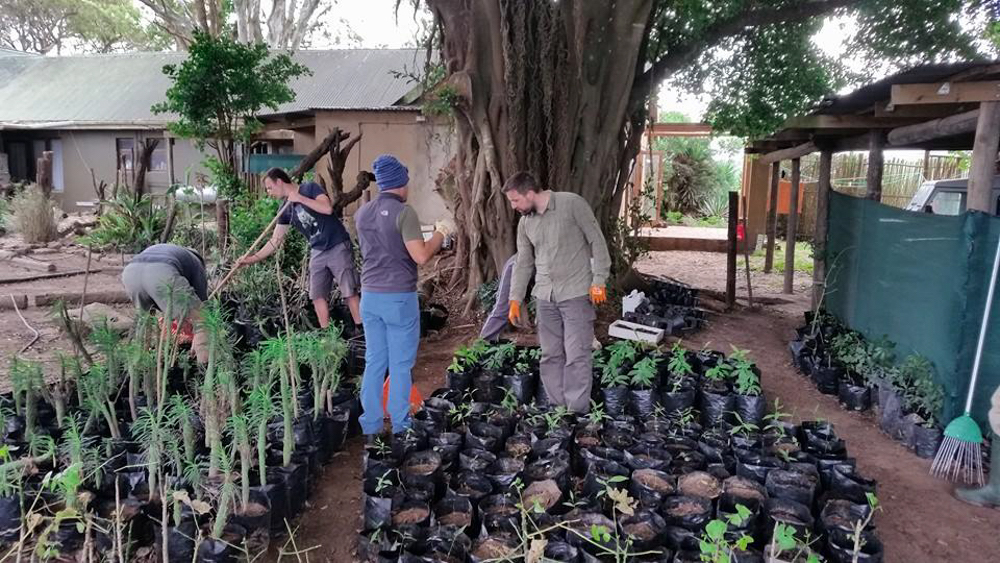Alien and Indigenous Plant Management
As recently as 25 years ago, 15 different farmers owned the existing 10,000 hectare Kariega Game Reserve and the land was used to grow crops and raise livestock. This activity displaced most of the wildlife and also introduced many alien plant species including the prickly pear and black wattle.
Alien Eradication
The prickly pear is an alien cactus species native to Mexico. It was planted to form hedges around farmlands to keep out wildlife with its very effective sharp spines. Livestock, and sometimes people, ate the fruit. The prickly pear's fleshy leaves have a high moisture content and were a blessing during periods of drought periods when farmers fed them to their livestock. This saved many animals from dying of starvation and dehydration. This exotic plant does not have any natural predators to control its growth. When this plant takes root it is very difficult to eradicate. Many areas of the Eastern Cape are severely affected by this plant and it needs to be eradicated to stop it from spreading further and taking over and suppressing the natural vegetation.
The Kariega Foundation and Kariega Game Reserve are collaborating to administer poison to kill the prickly pear, as this is the only really effective way to kill the whole plant and stop regrowth.
Farmers also introduced black wattle trees, native to Australia, as a source of wood. These trees like to grow in riverine areas and are very difficult to eradicate. The plant produces thousands of seeds that can stay dormant for many years before the perfect conditions are present for them to grow.
The Kariega Foundation and Kariega Game Reserve have been collaborating to eradicate this plant from various areas of the reserve for the past few years, but there is much work to be done. The volunteers in the Kariega Conservation Programme help immensely in this project. Armed with machetes and saws they hack, chop and pull out thousands of large and small black wattles each month. The volunteers revisit each area after the initial clearing to take out the offspring of the bigger trees. These trees need to be eradicated as they use huge amounts of water and also kill indigenous vegetation by making the soil acidic, which will in turn force wildlife out of the area.
This alien vegetation eradication project will continue to identify problem areas, eradicate alien plants and monitor the ongoing progress on the reserve. Every exotic plant removed is one step closer to returning the reserve to its natural balanced state.
Indigenous Plant Management
Kariega Game Reserve includes five different ecosystems namely valley bushveld, savannah grassland, fynbos, riverine forest and acacia woodland. These ecosystem include a mesmerizing variety of indigenous plants.
The Kariega Foundation in partnership with Kariega Game Reserve, supported by the Kariega Conservation Volunteer programme, aims to develop the existing indigenous and fruit tree nursery. Plants from the nursery are used across the reserve, around the lodges and in local communities.
The government has built a number of new houses in the local communities. These are part of the national Reconstruction and Development Project (RDP) and provide accommodation for disadvantaged families. These properties often remain bare of any vegetation. This Kariega Foundation project will provide fruit trees, edible and indigenous plants to produce food and also provide shade for the owners of these houses.
The Kariega Foundation will assist with ongoing funding and the Kariega Conservation Volunteers will assist to source, grow and replant indigenous and edible plants.
How can you Support this Project?
- Donate funds to support the development of the initial infrastructure of the nursery.
- Join the Kariega Volunteer Programme and play an active role in alien vegetation control and maintaining the indigenous nursery.
- Buy a tree and donate it to the local community.
How can you Help?
Any help and support we get from anyone is hugely appreciated.
You can help in many ways:
- Make an online donation on your credit card via GivenGain
- Start your own fundraising campaign for us via GivenGain
- Download and complete this credit card authorization form and email to foundation@kariega.co.za
- Donate cash in a pledge envelope at the reserve
- Add a donation to your account when you check out after your stay
- Transfer a donation into our bank account:
First National Bank
(or FirstRand Bank)
Account no: 62275606526
Branch:Newton Park
Branch code: 261050
Swift/IBAN: FIRNZAJJ or FIRNZAJJXXX
Bank Head Office Address: FNB Bank City, Simmonds Street, Johannesburg, 2000
Contact us regarding other ways to donate and support a project of your choice.
Conservation Updates
We post regular updates on all of our Kariega Foundation conservation projects. Read our conservation updates.










